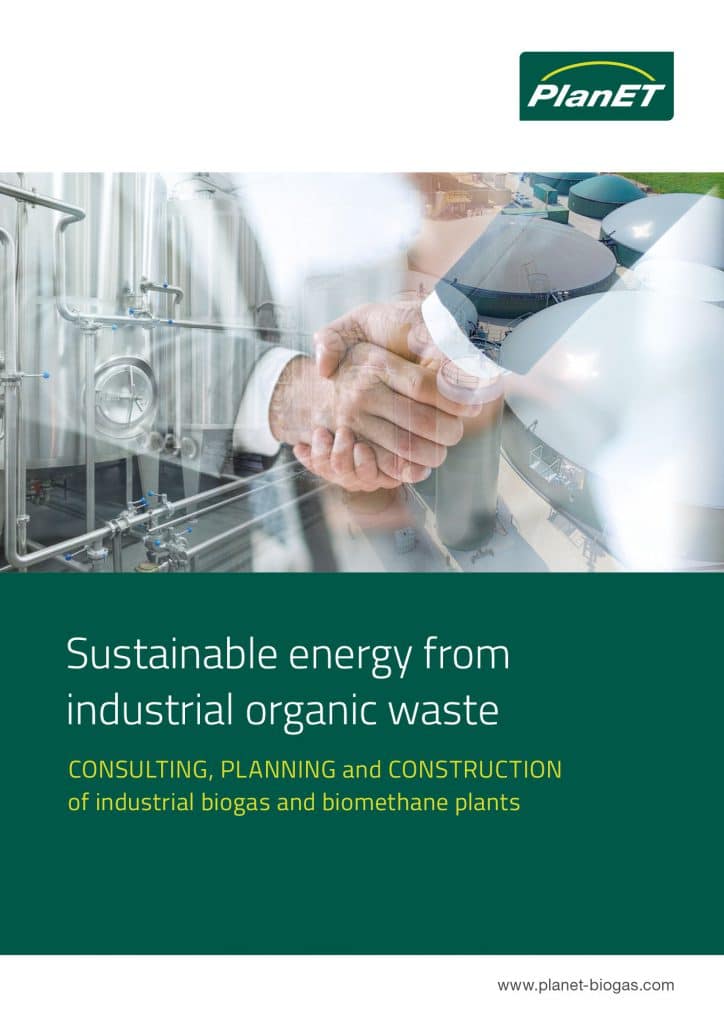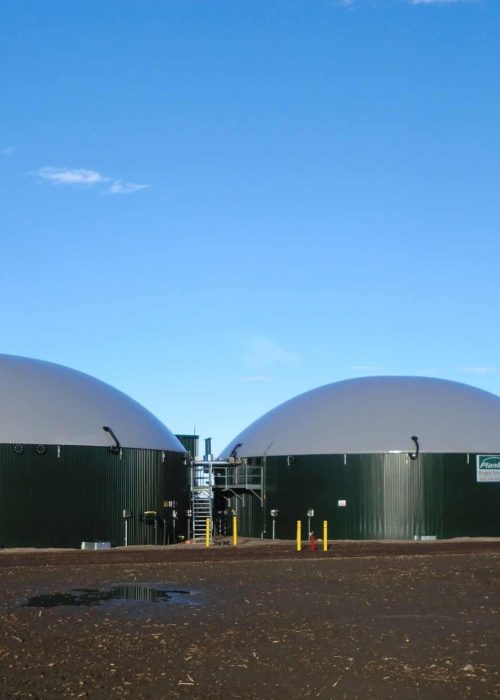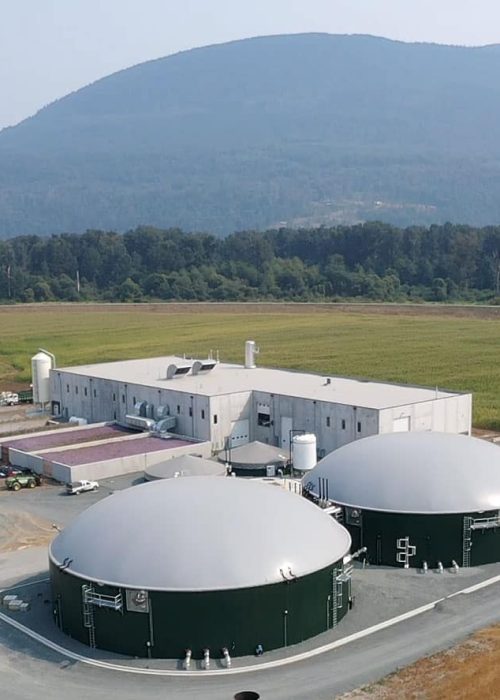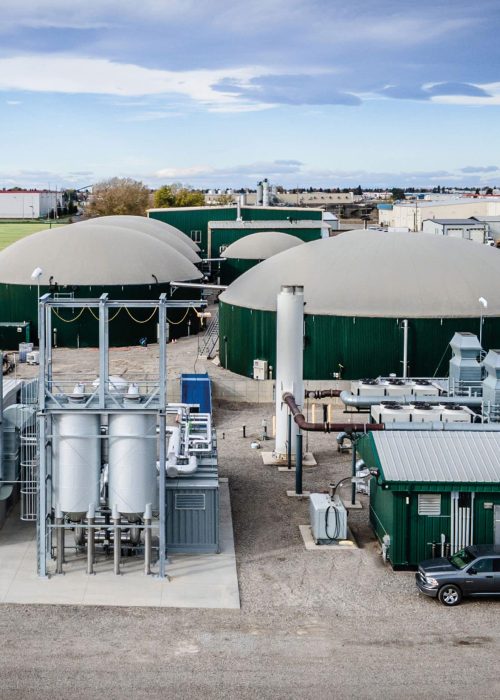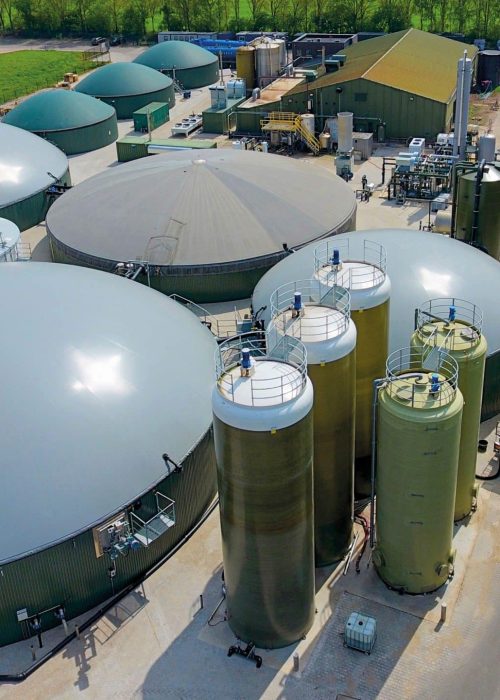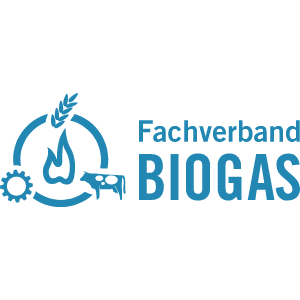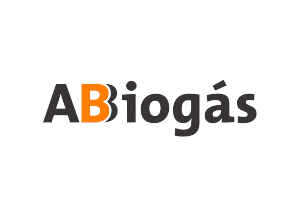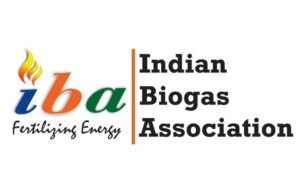Biogas yields from waste material
A biogas plant from PlanET can reduce your disposal costs, establish a sustainable energy supply and improve your carbon footprint.
As an experienced partner in the food industry, we design optimal all-in-one solutions for you that are individually tailored to your requirements. You decide for yourself what kind of energy you will obtain from the existing waste materials: from biogas, electricity and heat via biomethane to bio-CNG, bio-LNG, CO2 or fertiliser, there are various options open to you.
With our extensive expertise and our own biological department, we are ideally positioned to meet your requirements. In addition, we have already implemented innovations in this specific sector for the food industry, which are used worldwide today.
Thanks to our many years of expertise, we offer tailor-made solutions that combine the highest technical standards, durability and unsurpassed reliability. On the way to your own carbon-neutral energy production, we accompany you on every step of the way: From the idea through project planning and approval planning to commissioning. And with our after-sales services, you will continue to secure the best possible yield through continuous optimisation. This way you always have a competent contact person at your side.
Your benefits at a glance
High profitability
Reduce your costs: With biogas, you are opting for a profitable alternative to conventional energy sources.
Improving energy security
Use a sustainable solution for more energy security: Biogas is clean, safe and reliably available.
Improved carbon footprint
Reduce your greenhouse gas emissions: By making additional energy use of your production residues, you contribute to better sustainability and improve your carbon footprint.
Secured reutilisation
Benefit from the safe use of existing waste materials: This means that there are little or no disposal costs.
Full service from the beginning
Consultancy & design
Planning of permits
Plant construction
Service
Training
I'm here for you!
Do you have any questions about our services? Or would you like specific advice? I’ll be happy to help you. Get in touch with me – or make an appointment online. I look forward to hearing from you!

Our answers to your questions
- unpacking and preparation
- fermentation (synthesis of biogas)
- generation of electricity and heat by combustion of biogas in the combined heat and power plant
- processing of biogas into biomethane and possibly further into bio-CNG, bio-LNG, CO2
- feeding of biomethane into the natural gas grid
- fermentation residues are often used as a fertiliser
Not only slurry and manure end up in a biogas plant, but also existing residues from the food industry are suitable for generating energy. This may include brewery residues such as draff and surplus yeast, food leftovers from restaurants and commercial kitchens, confectionery, bakery residues, vegetable residues, pomace, fats and much more.
Only unpacked material can be used in the biogas plant!
With our innovative technologies, we separate the organic material from the packaging. The organic material obtained in this way can be used to generate energy. Customised concepts are developed for this purpose in individual cases.
As a rule, yes. The German Federal Immission Control Act (Bundes-Immissionsschutzgesetz, BImSchG) determines how operators of a biogas plant have to deal with odours generated there. During the planning of the biogas plant, we will develop a concept for compliance with all limit values by means of odour assessment. For example, apart from the planning of many organisational processes to avoid emissions by precise extraction and subsequent filtering of odour-contaminated air, odour emissions can be largely avoided.
